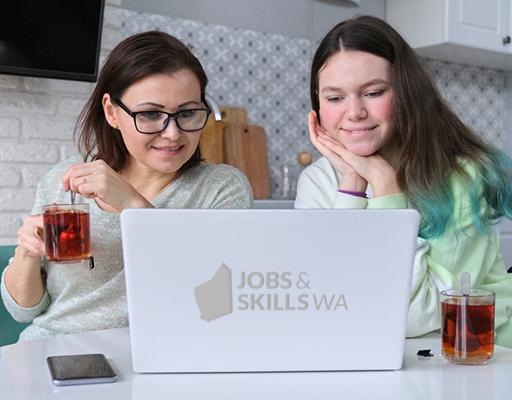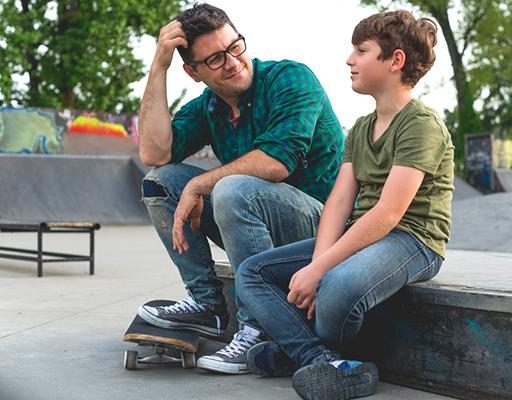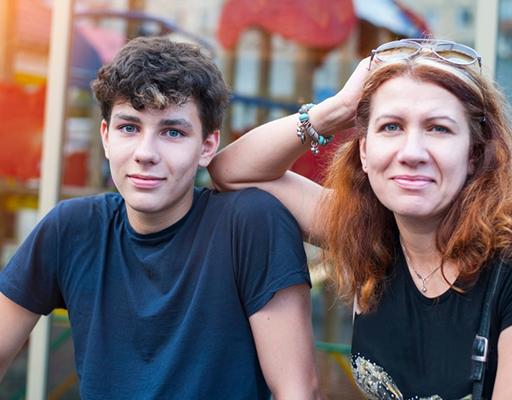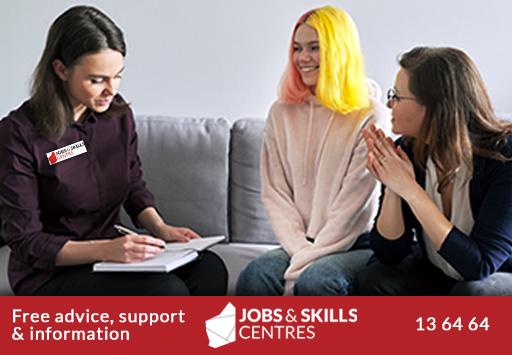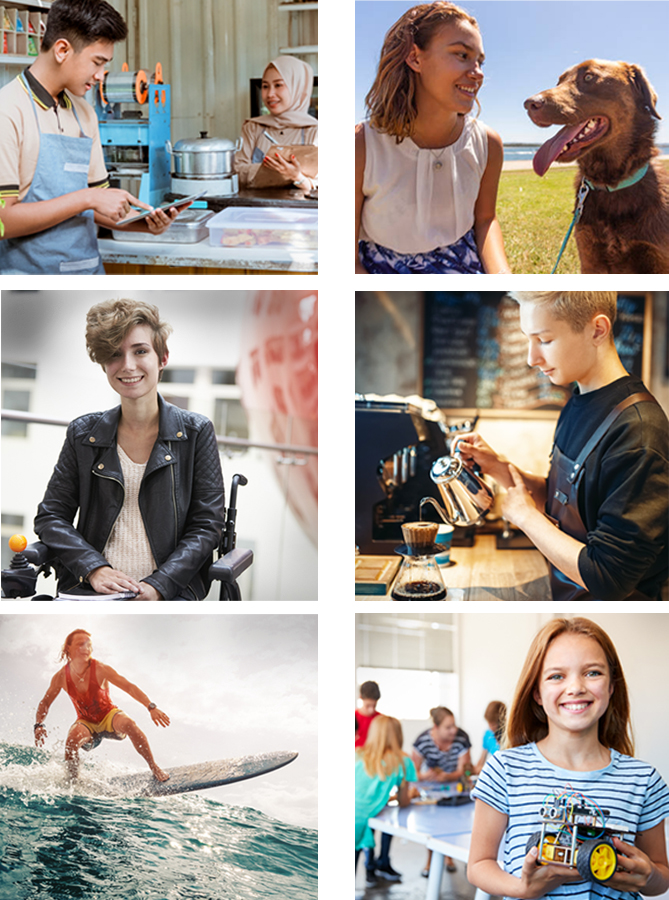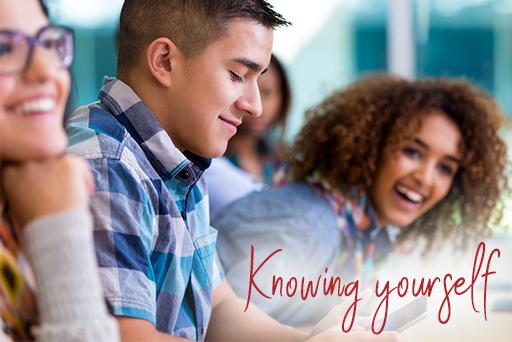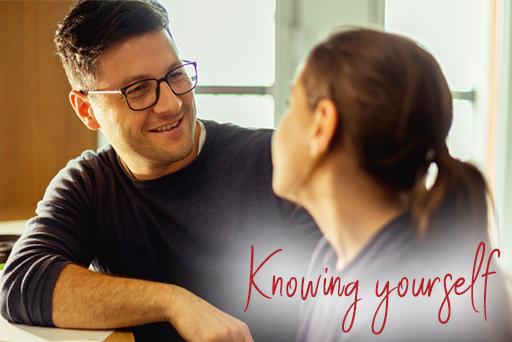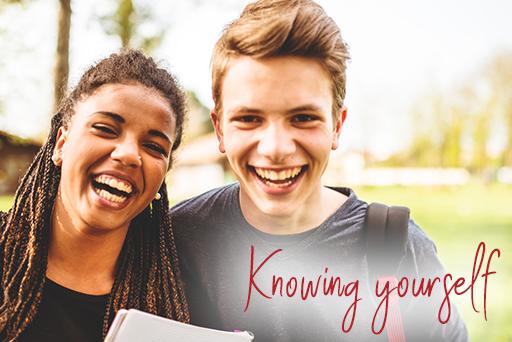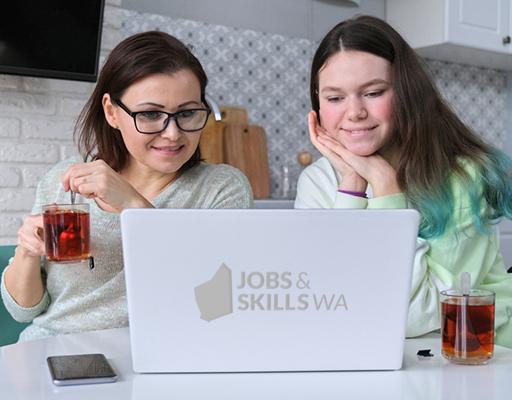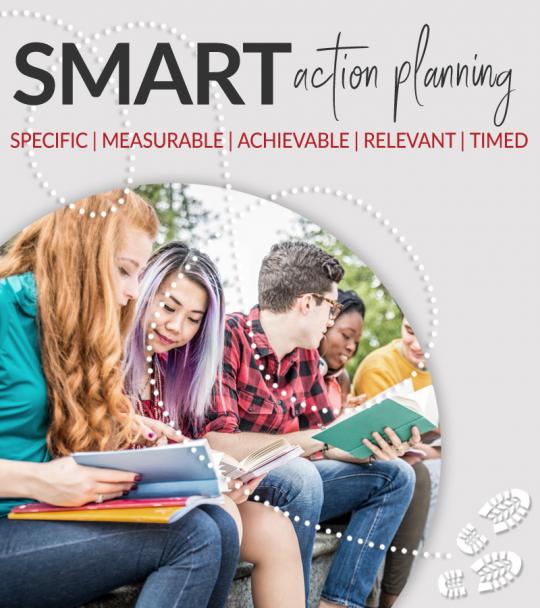Did you know... research indicates that parents* are the single greatest influence on a young person's education and career decisions? Of course there's also friends, other family members, the school environment and other external influences that come into play — but you have the greatest opportunity to provide support, advice and guidance for a young person's future plans.
*The term ‘parent’ is used broadly here to include any adult or influential family or community member in a young person’s life — it is not limited to biological parent/s, and is intended to refer to any adult wishing to play a positive role in helping a young person build their future.
Here we aim to provide you with some information, strategies and resources that can help you support the career planning process.
Follow the links below, to find out more.
Free support and advice
Jobs and Skills Centres are located across regional and metropolitan WA, and they can help with advice and support about all things jobs, careers and training. An experienced careers specialist at your local JSC can help with all aspects of career planning and decision making, and offer information and support. All services are free!
Call your local JSC on 13 64 64, or find your nearest JSC via the link below and drop in for a chat.

The future world of work
The world around us is changing, and with the impact of COVID-19 the future may feel uncertain — particularly for younger people. But as you probably know, many young people are very adaptable and this will definitely help them to move and shift with the changes. Flexibility will be key, and resilience will be needed. And most importantly, lifelong learning — new skills, new knowledge, keeping up with technology and new practices.
As a parent, it's sometimes difficult to relate to this new world that's ahead — it's probably very different to what you experienced as a student and at the start of your working life or career. One of the challenges is to put aside our perceptions and be willing to look at different and new possibilities. Where the idea of a "job for life" may have been a good thing a generation ago, it's likely that a 15-year old today will have 17 different employers across five different careers1! The key is to look at change as a positive thing — with change comes new opportunities; new jobs, new ways of working, and new skills. Work out where these opportunities are, and — based on good information — use this to help navigate through decision making about future plans.
The goal for young people is to finish school, build a broad base of transferrable and technical skills through education, training, and work experience. These days it's not so much about being "employable" across a range of different jobs, occupations and careers — employability or transferrable skills are essential so that they can secure work, and continue to develop their career.
1From the Foundation for Young Australians "The New Work Reality" report
Jobs and skills that are most likely to change in the future
As a general rule, jobs that are highly routine and involve repeated processes are at risk of significant change in the future, due to advances in technology such as the use of automation, drones and robotics.
We are seeing this already in areas such as agriculture, forestry and fishing, manufacturing and production, mining and transportation but also in work that is traditionally more office-based; such as administration and finance.
Jobs and skills that will still be needed in the future
Work that requires problem-solving, creativity, adaptability, flexibility and communication will still be around in the future. So will jobs requiring physical proximity and social and interpersonal skills.
Examples include teaching, engineering, design, construction, education, health services, some customer service fields, and aged care and disability work. In general, service-based industries will continue to offer strong career prospects.
Here's some great information and resources you can explore.
Looks at jobs now, and into the future — where will the demand be? |
The NSC has identified 25 "emerging occupations" within Australia. |
A range of reports and research into Australia's future labour market and employment trends. |

Starting the conversation
Starting the conversation about future plans can be difficult, particularly when your young person isn't sure what they want to do. It can also be quite daunting for a young person to try and think about their future, when things seem uncertain. The important thing is to take that first step and start the conversation — not all questions need to be answered at once, and not all problems must be solved immediately.
By starting the conversation, you can start to better understand the fears and uncertainties, challenges and barriers your young person may be concerned about, but also their goals, hopes and aspirations. Here's some top tips to engage your young person in the topic of career planning.
You may not agree with their thinking, or even with their choices, but it's important to listen and keep an open mind.
Focus on what they want, rather than what you might think is best for them... you can always negotiate later, but in the early stages it's important for them to feel they can speak to you honestly about their future. Keep your emotions in check, and take a break when you need to!
We understand that young people can be full of great ideas, but sometimes these are not always realistic or achievable... or perhaps they don't represent the future you want for your young person.
It's important not to judge too harshly — ideas are great, they just need to be shaped into something that can actually work! This is where your experience and maturity comes in to play, but try to avoid making judgements — keep the conversation positive.
Many younger people have a fairly limited knowledge of what jobs and careers are out there, and what their options could be. Some will be aiming high, where others who are less confident may not expect much of themselves.
We have over 500 occupation profiles here on our website, and these are a great way to explore ideas together.
Career planning is challenging for most people, and sometimes it's good to get some help from the experts. And it's OK to not be the person best suited to do this — it can be challenging.
Your local Jobs and Skills Centre can help with options for study or training at school or after leaving school, career planning, even getting a resume together and applying for work experience or jobs.
All services are free — just call 13 64 64 to contact your local JSC and find out how they can help.

What is career planning?
Career planning is a process of deciding what kind of career you want for yourself, thinking about what you'll need to do to achieve it, setting actions and goals, and then identifying what you can do to achieve those goals. It also involves matching up your own personal goals, skills and abilities with the type of work that will be satisfying and rewarding for you. It's about setting your sights on the future career you want for yourself, and committing to the steps needed to get there.
Career planning is an ongoing process — as we grow and change, and develop skills and experience, we may want to change direction or look at different career options. It's at these times that a career plan should be reviewed and updated. This is particularly relevant to a younger person's career planning — often, their career goals at 20 or 18 will be quite different to what they were at 14 or 16.
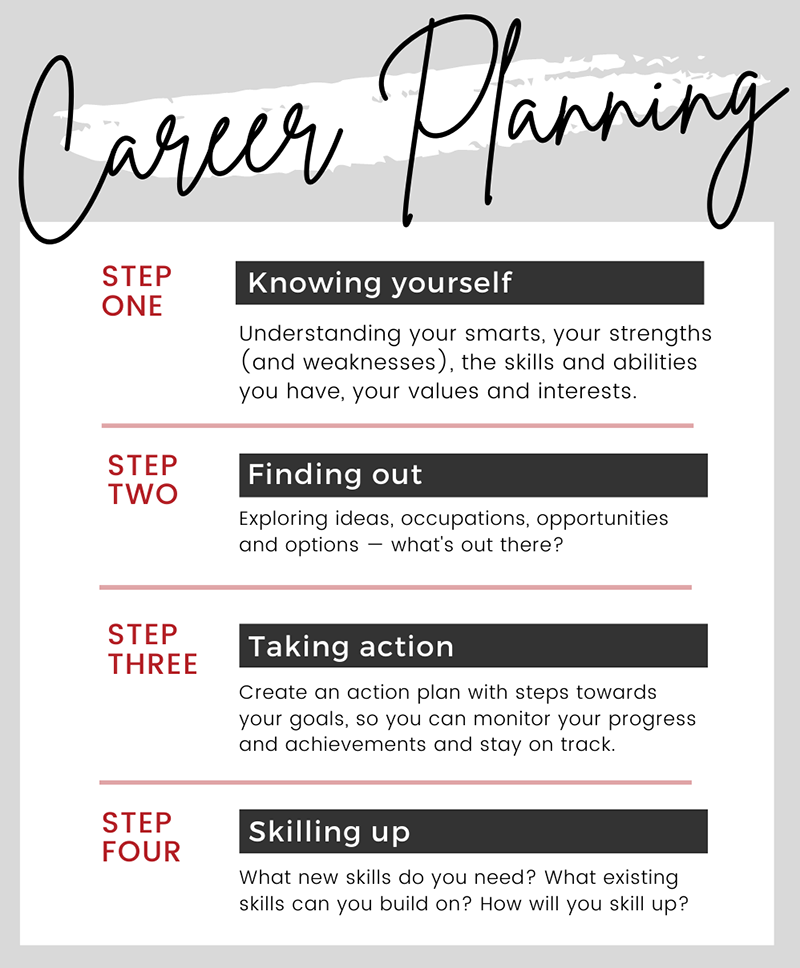
You may see a few different models for career planning, but really there's four main steps involved; knowing yourself, finding out, taking action, and skilling up. Each step presents opportunities for you to get involved; whether it's to help with the elements that can be more challenging such as knowing yourself, or to help with decision making around taking action or skilling up.
Note that this is an iterative process, and it can be used a number of times over the life of a career.
Two of the key things you can bring to the process are support and motivation. It's important to stay positive, supportive and encouraging but also to provide some balance and perspective.
For some younger people, career planning can start off as being exciting — thinking about the future and all the opportunities it presents — but then the reality of what will be required to actually make that future happen can hit a bit hard.
You can also help with monitoring and celebrating achievements — this can help your young person stay motivated to keep working towards their goals.
Please visit our career planning information, for useful information and resources including quizzes and templates that you can use to support the career planning process.

Knowing yourself
With everything changing, everywhere, and all the time — nobody has all the answers! But the choices we make and the path we take will be influenced by our own opinions and interests, and our attitudes and values — that's why it's so important for young people to know themselves, so that they can be confident about making the right decisions.
It's also important to be able to recognise their skills and abilities, because that's how we assess opportunities (Can I do this?) and what gives us confidence to take those first steps. Some younger people feel they don't really have any particular skills that would be useful for employment or a career, but they're very often wrong about that! What's really happening is that they don't recognise the skills they do have, and this can have a major impact on not only their thoughts about future career options but also on their self confidence.
You can play a key role in helping them know themselves better, for career planning. As a parent, you influence the way your child builds their own ideas about work and careers.
Knowing yourself: Self-assessment
To find a career that fits, everyone needs to identify what is important to them. Self-assessment helps to do this, it's the foundation to career planning and making effective career decisions.
Career planning needs to start with considering questions like what their strengths are (and your not-so-strong points), what people like (and don't like) about them, their interests, and their beliefs and values. You can help your child to assess and identify their interests, skills, and work values and then use these to explore the many options and opportunities available to them.
Please visit the Knowing yourself section of our students page for some useful information, or the following resources on the myfuture.edu.au website*.
- Career decision making through self-awareness
- Identifying your interests activity
- What are your values? Interactive quiz
- Other self-knowledge quizzes and activities
* The myfuture.edu.au website is free to use, but you'll need to create a login.
Knowing yourself: Skills and abilities
There's two kinds of skills to focus on initially; technical, and employability skills.
| Technical skills |
|---|
|
These are the skills we have from things we have learnt how to do; like using a computer, fixing a flat tyre, balancing a spreadsheet, reading a plan or interpreting measurements, constructing something, or operating a sewing machine. Every job has a specific set of technical skills that are required in order to carry out the work. Technical skills are fairly easy to identify, and will often relate directly to a particular job or occupation. Knowing your own technical skills can not only help with decision making about occupations and careers, but can also help to identify any areas where additional training or experience is needed. |
| Employability skills |
|---|
|
These are the skills that will help you to be successful in your career, to be productive and efficient, and be able to interact positively with your colleagues. They include communication, teamwork, problem solving and decision making skills. They're called "employability skills" because although potential employers will look at technical skills, they will be looking just as closely at these other skills to assess your suitability for the job. Being aware of your proficiency in these employability skills areas can help to identify where to focus your efforts for improvement. Employability skills can be learned, and enhanced through experience. |
Being able to identify your own skills and knowledge is a key part of the career planning process.
Many young people are surprised to find how many skills they actually have, and about the value those skills hold in terms of future career plans.
Useful information and resources
To help you with this part of the career planning process, please visit Planning for your future on our Career Planning for students page or the following resources on the myfuture.edu.au website*.
- Recognising your skills and abilities
- Personal and transferable skills checklist
- Employability skills fact sheet
- Your career — Your options now
* The myfuture.edu.au website is free to use, but you'll need to create a login.

Finding out
This stage of the career planning process involves doing some investigations and looking around at what's happening out there — where are the opportunities now and into the future, and what kind of occupations align with not only your skills but also your goals? And with all that in mind, what are your options?
Because career planning may be a new concept for some young people, and for others — looking into the future and making plans may feel weird right now, or they just need a bit of motivation to start thinking about where they're going. This is a time where your life experience, and that of other family members and friends, can really add value.
Here's some ideas for how you can help with finding out.
Sometimes the challenge with career conversations is context... it can be hard to think ahead at such a young age, and see yourself in a different way. And for some younger people, career planning can be very challenging because they may lack experience of life and work, and self-knowledge.
Hearing other people's career stories can help with this — and everyone has a story! Think about family members or close friends — what has their career journey been and where are they now, or what kind of path have they taken through their working life? They don't have to be brain surgeons or astronauts — actually, the more relatable their story, the more powerful it can be. It's important to convey the message that a career is achievable, and goals can be reached, if you plan ahead and put in the effort.
The best way to find out about a particular type of work, an occupation or industry is to get in there and do it! Whether full time, part time or casual; any experience of work increases a young person’s self-knowledge. Knowledge about skills, interests and what motivates you informs and clarifies work and study options and career pathways.;
- Part time work is an excellent option, because it gives a sense of "real work" — what it would be like to actually do this as a job, or to be in this kind of workplace or industry.
- Work experience is a fantastic way to gain real life experience of a job, workplace or industry but without the commitment of being an employee. This can be a great option, and many businesses do support work experience students.
Popular options for younger people looking for part time work or work experience include the following.
- Retail — Any kind of store that sells goods to customers — from a small specialty stores to a supermarket or chain store or even a large department store. Great for building communication skills, customer service skills, negotiation and problem solving skills.
- Hospitality — So many choices.. cafes, cinemas, restaurants, bars, hotels, takeaway food stores and sporting venues (over 18s only, if alcohol is served).
Both retail and hospitality are fantastic for developing skills in communication, customer service , negotiation and problem solving , and teamwork. This kind of work that has a high level of interaction with people will also help to build self confidence.
- Volunteer work not only offers great skill building opportunities, but can also be very rewarding. Many organisations across Western Australia offer a range of volunteering opportunities, as do many local community-based organisations such as animal shelters.
You may be surprised to know how many successful and/or famous people came from humble beginnings, or had to overcome challenges and struggles to get to where they are today. Whether they're in sports, music, science, movies, big tech or any other field — most successful people have one thing in common... they had goals, and they had a plan.
These stories can be very motivating for younger people, particularly if it's a person they admire.
If you have a service such as Netflix or Stan, check for biographies and documentaries to see what's available, but there's also good content on free to air television — particularly on SBS and ABC channels. You could also check the free streaming services that are available, such as Freeview, 7plus, 9Now, 10play, ABCiview and SBS OnDemand as many of these offer a wide range of content that isn't available on the regular free to air TV channels.
Your local library may also have a good range of movies and documentaries that you can loan, and if not — check the biographies section for some great books!
There's also over 100 inspiring career stories available to watch on the myfuture.edu.au website. These are free to watch, but you may need to register for access.
There's also some great information and case studies on our Finding out page
Occupation profiles
To help find out about occupations and different jobs, we have over 600 occupation profiles you can browse through. You can find out the kind of work involved, and what training might be required, and other useful information that could help with career planning and decision making.
Visit our Occupation profiles page to search for occupations and careers
You can also visit the myfuture.edu.au website and explore videos covering over 300 occupations, each one with a real-life story of people working in specific occupations. The website is free, but you may have to register for access the videos and other career planning resources.
You can also use the career profiles on Job Outlook to learn about the future outlook, pay, main tasks, and physical and other demands of careers that interest you, and find out about the skills, knowledge and abilities you may need to get and keep a job.

Taking action
Once you feel that skills and abilities have been identified, and options explored, it's time to start working out the actions that will be needed to make this career plan happen! The easiest way to do this is to create an action plan, with steps towards the goals. An action plan will help to:
- set goals for the career plan;
- establish the actions needed to achieve these goals; and
- build commitment to the career plan.
Be prepared that this step can be challenging — up until now, the career planning process has been interesting and informative but now we're at the stage where things get real! This is where your support will be important, to make your young person feel confident about committing to getting this done. However; it's important that your young person takes ownership of their action plan — they must be actively involved in the process; ideally, they should come up with their own goals and actions.
Setting SMART goals
The goals within the action plan will help to keep things on track. The goals should be written clearly and concisely — following the SMART model will help with this.
SPECIFIC: Write the goal exactly as it is, and specify a clear outcome.
MEASURABLE: How will you know the goal has been achieved?
ACHIEVABLE: Is the goal feasible within your time frame? Are you motivated to complete it?
RELEVANT: Is the goal relevant to your overall career plan?
TIMED: When will you complete this by?
Example
Get my drivers' license by December this year, so I can get to TAFE next year to do my study.
Once the action plan is in place, it should be reviewed regularly to ensure that the goals still align with the career plan, and to check how things are progressing.
Sometimes it will need adjusting, to accommodate changes in direction or goals.
The following resources and information may be helpful with the taking action stage.

Skilling up
An important part of career planning is identifying the skills that will be needed to support and achieve your career goals. This is particularly important for younger people, including those still at school, because the skills and work capabilities they develop in these early years can set them up for future career success.
The good news is, there's a range of ways to skill up! From work experience and volunteering, through to gaining a vocational education and training (VET) qualification while still at school — this is an ideal time to get a jump start on a future career.
Skilling up while still at school
As a secondary school student, there's a number of VET options for skilling up while still at school. The following VET programs offer fantastic options.
VET programs delivered to secondary school students (VETDSS)
Under a VETDSS program, secondary school students have the opportunity to complete (or study towards) a nationally recognised VET qualification while still at school. This may also count towards the Western Australian Certificate of Education (WACE).
Pre-apprenticeships and pre-traineeships in schools
These are Certificate II level qualifications approved by industry as suitable for secondary school students. Pre-apprenticeship and pre-traineeship programs offer entry-level skills and knowledge to give students a head start on an apprenticeship or traineeship. They are available in a range of industry areas including automotive; community services; hospitality; tourism and landscaping; and a range of trades areas such as building and construction, electrical, manufacturing. In the pre-apprenticeship and pre-traineeship programs; students attend school, do training at a TAFE or private training provider, and participate in work placements with an employer.
School-based apprenticeships and traineeships
School-based apprenticeships and traineeships (SBA or SBT) are paid employment-based VET programs at Certificate II or III level. Students continue full time at school completing their WACE, attend training at a TAFE or registered training organisation, and are also employed part time (paid) in an industry workplace for on the job training. SBATs are an excellent option to kickstart your career in your chosen field. There's over 250 SBATs available in a wide range of industries and trades.
Aboriginal school-based training (ASBT)
The ASBT program aims to help Aboriginal students gain the skills to keep studying after school or get a job, and is available for Aboriginal students in Years 10, 11 and 12. Finishing an ASBT course may count towards the WACE.
Aboriginal school-based apprenticeships and traineeships
This option is available for full time Aboriginal students who are at least 15 years old and ready to do a school-based apprenticeship or traineeship. Students continue to go to school, and do training at a TAFE or private training provider. They will also work part time (paid employment), to get on the job training and experience with support from an employer.
Workplace learning programs
Workplace learning is a structured and formalised program for students in Years 11 and 12 that enables them to gain practical on the job experience through a work placement with an industry employer. This also can contribute to the WACE.
Skilling up after school
If your young person has already left school, or is planning to, but their future plans will require some further training or education, there's a range of options you could consider for skilling up.
Pre-traineeships and apprenticeships
A pre-apprenticeship or pre-traineeship is a Certificate II program that includes a work placement component, coordinated by a TAFE college or training provider. They provide industry specific training, combined with hands-on experience in a real workplace, to gain valuable industry skills and knowledge in preparation for employment and boost opportunities for employment (particularly for an apprenticeship or traineeship). They are also an excellent option for those who aren't sure whether a particular occupation or industry is right for them.
Please visit our Pre-apprenticeships and pre-traineeships page to find out more.
Apprenticeships and traineeships
Some types of work require specialist skills and knowledge or a trades qualification — these jobs are offered through an apprenticeship or traineeship. Apprenticeships and traineeships combine work with training for a nationally recognised qualification. These are a great option as you earn while you learn, and come out not only skilled and experienced but also with a nationally recognised qualification.
Apprenticeships typically take three to four years to complete and traditionally cover skilled trade areas such as automotive, engineering, electrotechnology, and building and construction Traineeships can take between one to two years to complete and offer a broad range of non-trade areas including business, finance, information technology, community services and healthcare.
Please visit our Apprenticeships and traineeships page to find out more.
Study at TAFE
TAFE colleges are located across Western Australia, with over 55 campuses and over 1,000 courses. They provide a range of nationally recognised and accredited VET courses, and offer an adult learning environment where students mentoring and support from industry-qualified lecturers.
Registered training organisations (RTOs)
There’s a number of private training providers registered across Western Australia that offer a range of VET courses, and many of them also support VET in secondary schools programs.
WA Universities
If their career plans are for a professional occupation — for example; in the medical field, specialised engineering or computer science — your young person may need to gain a university level qualification such as a degree.
Other options for young people
The following options are a fantastic supplement to school or other training, or for general skilling up.
Work experience
Although generally unpaid, work experience can be a great way to get hands-on practical experience in a particular field or occupation. Employers value skills and experience, so this can offer an advantage when looking for work.
Internships and cadetships
An internship or cadetship is work experience combined with on the job training while studying for a professional, managerial or office career – similar to how people studying trades qualifications do an apprenticeship. An internship or cadetship can be done by secondary school students as well as those studying at college or university, and they're a great way to skill up.
Internships are generally short term, and are usually unpaid. They may lead to employment with the company but there’s no guarantee of this. An internship or cadetship is a great addition to your resumé.
Volunteering
Doing volunteer work is like work experience, but it's usually with a group or community organisation rather than a business. For example; volunteering at an animal shelter, or an aged care home, or with an environmental group looking after waterways or bushland. Many hospitals and schools look for volunteers, as do charity organisations. Not only does volunteering help skill up by getting hands-on experience, but also make a positive contribution to the community.
Your local Jobs and Skills Centre can provide free information and advice about skilling up, including options for school students. Call your local JSC on 13 64 64 to find out how they can help.
Fee free and low fee training
If you're looking for a way to boost skills, get job ready, and kickstart a career plan — How about a free training course — yes... free! Or a free skill set with workplace-focused training to get job ready?
For school leavers aged under 24 or jobseekers, there's a whole load of free courses to choose from!
There's also full qualifications with course fees at half price or even less — this training matches up with where the jobs are, and there's even pre-apprenticeships and pre-traineeships on the list.
And not only are course fees reduced, but for under-24s or jobseekers they're capped at $400 for the year.
There's never been a better time to get into training and get the skills you need.
Useful resources and information
Looking for useful information and resources? Here's some websites to visit.
- The myfuture website has a section for parents and carers, with a range of information and advice (myfuture is free to use, but you will need to create an account)
- Career articles: myfuture offers a range practical tips in career articles covering work experience, apprenticeships, writing resumes, applying for jobs and more
- Career stories: myfuture's career stories showcase the careers of real people
- Career bullseyes: The popular Career bullseyes show students how occupations relate to school learning areas
- List of courses on myfuture: Search over 15,000 current higher education and vocational education and training (VET) courses delivered by Australian universities, TAFEs and registered training organisations
- My career profile: The activities in My career profile enable students to explore their interests, skills and values, and generate a personalised list of suggested occupations.
- Information about industries: The industry profiles on myfuture include information about different industries, including their employment prospects
- JobOutlook: This Australian Government website has some useful information and quizzes to help you make decisions about career planning and the world of work
- Job search resources: These templates and resources will help students to learn how to write a resume and cover letter
- yourcareer.gov.au helps people find impartial employment and education information and advice, and offers career exploration and job search resources.

How we can help
Supporting a young person through the career planning process can be a very positive experience, but it may also present some challenges — that's where we can help. Jobs and Skills Centres are located throughout metropolitan Perth and regional WA, and they offer assistance with career planning.
Whether you're looking for information about skilling up, support for finding a job, or simply someone to help guide you and your young person through career decisions — your local JSC can help. You can call and talk to them over the phone, or visit in person, and best of all — their services are completely free!



